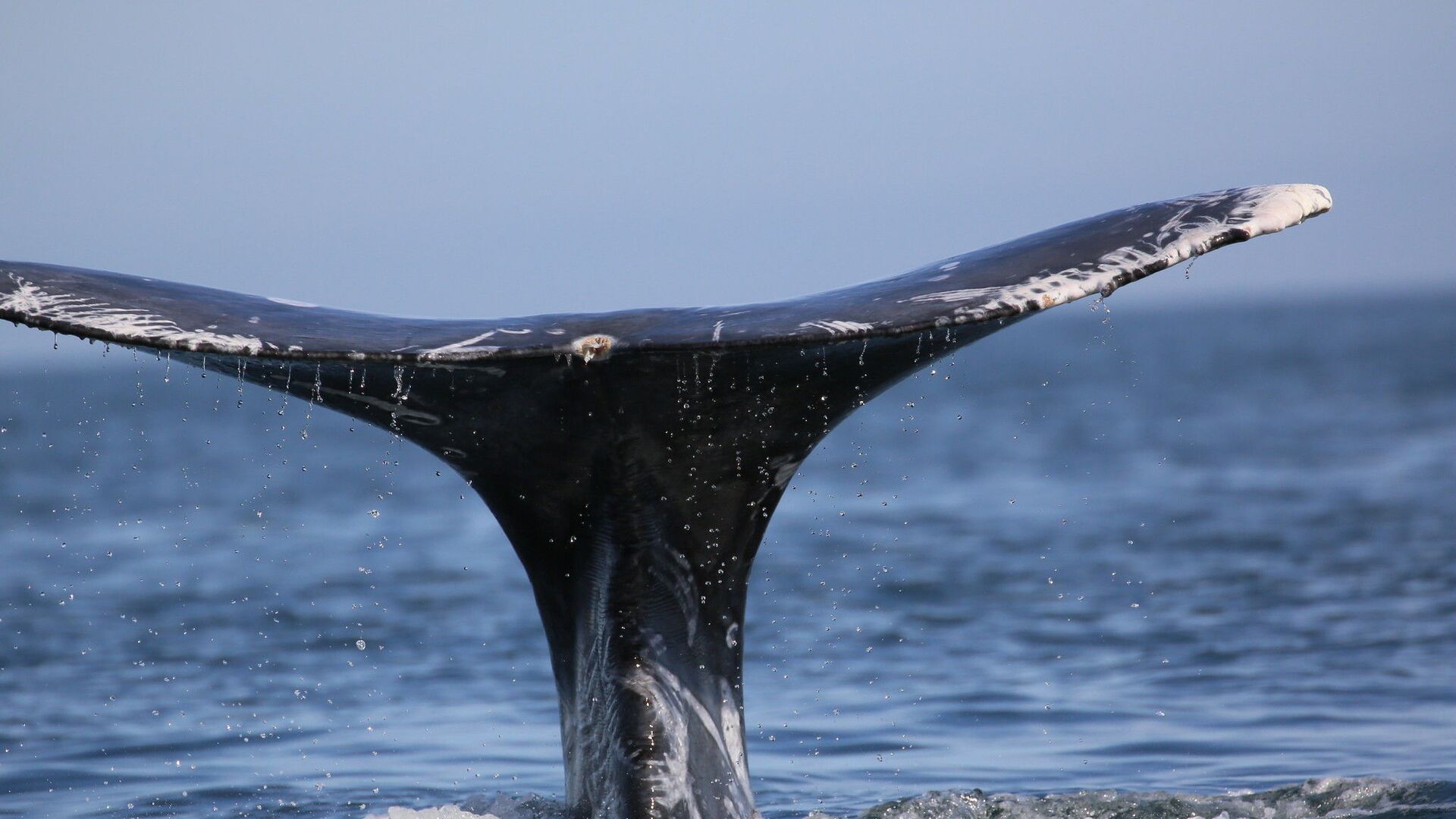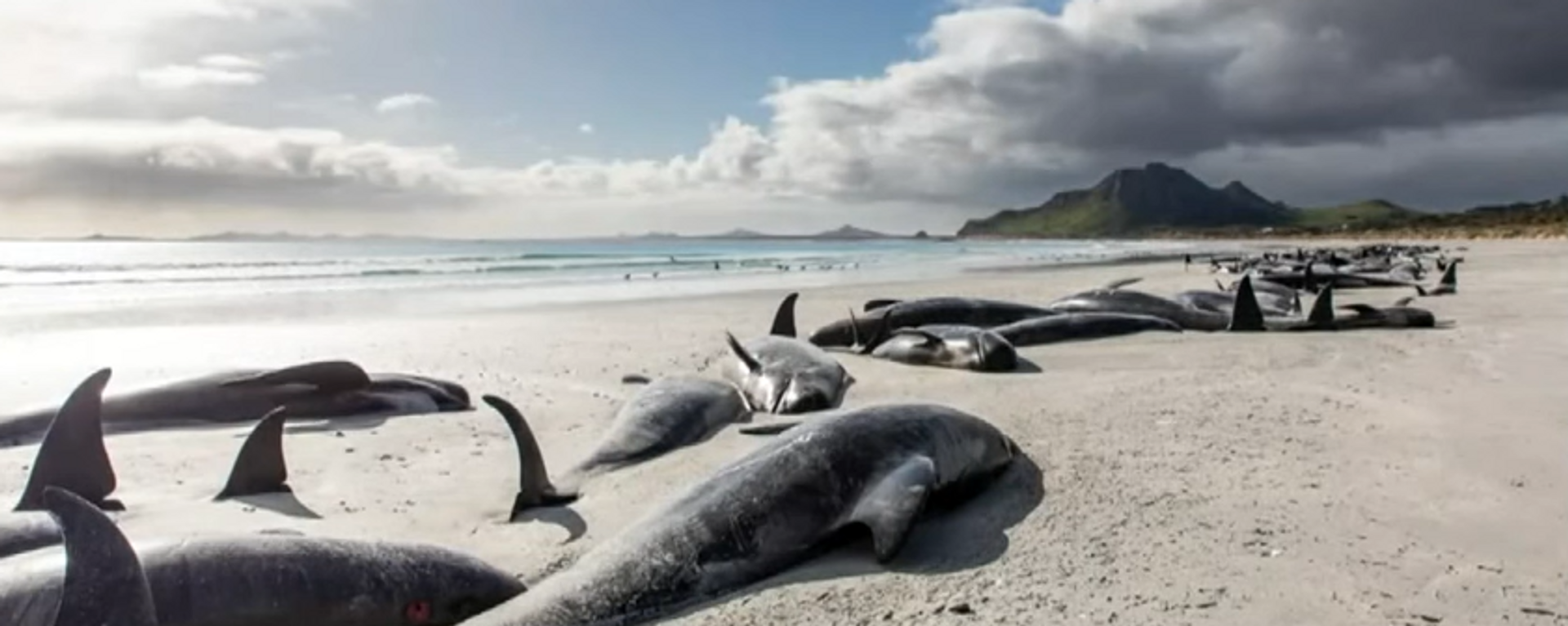https://sputnikglobe.com/20230803/this-pre-historic-whale-may-have-been-the-heaviest-animal-ever-1112361104.html
This Pre-Historic Whale May Have Been The Heaviest Animal Ever
This Pre-Historic Whale May Have Been The Heaviest Animal Ever
Sputnik International
A team of paleontologists announced the discovery of the remains of a large marine fossil in the Peruvian desert that appears to have exceeded the mass of the blue whale - the modern record holder. The new species was named Perucetus colossus - "Peruvian Colossal Whale".
2023-08-03T10:53+0000
2023-08-03T10:53+0000
2023-08-03T10:53+0000
beyond politics
peru
science & tech
ancient
https://cdn1.img.sputnikglobe.com/img/07e5/04/0a/1082589473_0:62:2048:1214_1920x0_80_0_0_526b85109acd545be0eb49e804012af0.jpg
A team of paleontologists announced the discovery of the remains of a large marine fossil in the Peruvian desert that appears to have exceeded the mass of the blue whale - the modern record holder. The new species was named Perucetus colossus - "Peruvian Colossal Whale".The bones of the ancient whale were first discovered more than 10 years ago by researchers from the University of San Marcos in Lima. But it took several years of intensive digging to fully uncover and recover the fossil remains from a rock mass in the desert in southern Peru that was once a seabed long ago. As a result of the excavation, researchers were able to collect 13 individual vertebrae, four ribs and a whale femur. Each vertebra weighs more than 100 kilograms, and the ribs are nearly 1.5 meters long. The fossil remains are approximately 39 million years old.The analysis showed that the pre-historic giant weighed between 85 and 320 tons. Unfortunately, the remains found have a very large margin of error, but if the actual weight was close to the upper limit of the estimate, then this animal was the heaviest ever found. For comparison, the largest blue whales weigh about 200 tons. At the same time, this fossil whale was only about 20 meters long. Blue whales grow to be up to 30 meters long. The difference in weight is due to the greater bone density of the fossil.
https://sputnikglobe.com/20230728/nearly-100-pilot-whales-die-on-australian-beach-as-rescue-efforts-prove-unsuccessful-1112200245.html
peru
Sputnik International
feedback@sputniknews.com
+74956456601
MIA „Rossiya Segodnya“
2023
Sputnik International
feedback@sputniknews.com
+74956456601
MIA „Rossiya Segodnya“
News
en_EN
Sputnik International
feedback@sputniknews.com
+74956456601
MIA „Rossiya Segodnya“
Sputnik International
feedback@sputniknews.com
+74956456601
MIA „Rossiya Segodnya“
large marine fossil, peruvian desert, perucetus colossus
large marine fossil, peruvian desert, perucetus colossus
This Pre-Historic Whale May Have Been The Heaviest Animal Ever
Whales are marine mammals belonging to the infraorder Cetacea. They are massive creatures with impressive diving and vocalization skills. They have a unique feeding and communication system and can live for over a hundred years.
A team of paleontologists announced the discovery of the remains of a large marine fossil in the Peruvian desert that appears to have exceeded the mass of the blue whale - the modern record holder. The new species was named Perucetus colossus - "Peruvian Colossal Whale".
The bones of the ancient whale were first discovered more than 10 years ago by researchers from the University of San Marcos in Lima. But it took several years of intensive digging to fully uncover and recover the fossil remains from a rock mass in the desert in southern Peru that was once a seabed long ago.
As a result of the excavation, researchers were able to collect 13 individual vertebrae, four ribs and a
whale femur. Each vertebra weighs more than 100 kilograms, and the ribs are nearly 1.5 meters long. The fossil remains are approximately
39 million years old.
The analysis showed that the pre-historic giant weighed between 85 and 320 tons. Unfortunately, the remains found have a very large margin of error, but if the actual weight was close to the upper limit of the estimate, then this animal was the heaviest ever found. For comparison, the largest blue whales weigh about 200 tons. At the same time, this fossil whale was only about 20 meters long. Blue whales grow to be up to 30 meters long. The difference in weight is due to the greater bone density of the fossil.



